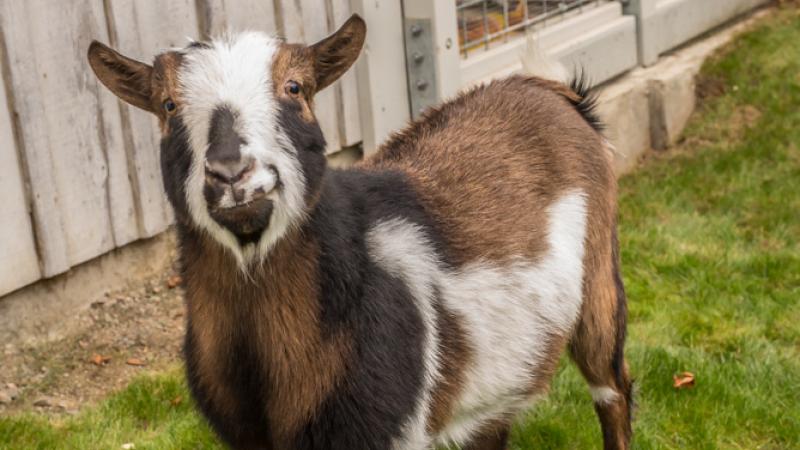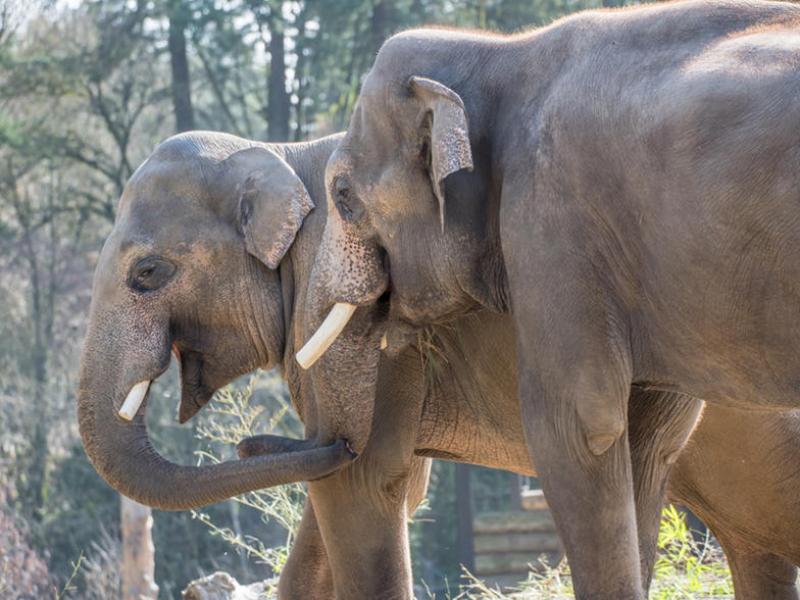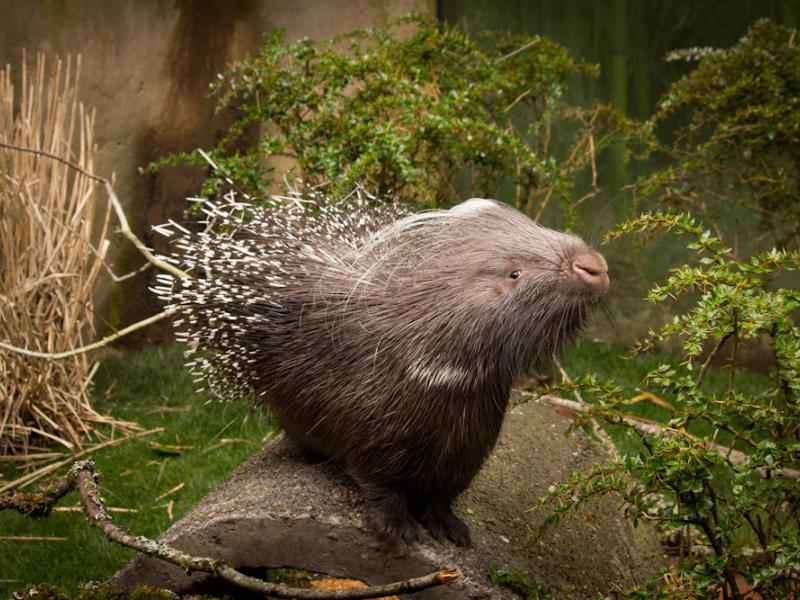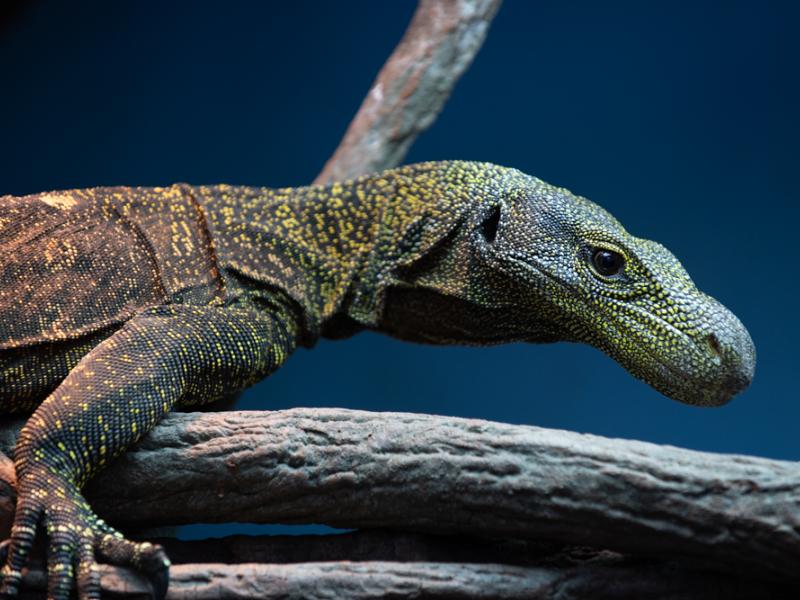
The Nigerian dwarf is a miniature goat from West Africa. It has been domesticated as a dairy goat and can be found throughout the world. Goats are herbivores.
Nigerian goat behavior and facts
- Goats are browsers, eating tips of woody shrubs and trees. They often improve a pasture by removing blackberry, weedy undergrowth and ivy (even poison ivy and poison oak) that other livestock won't eat.
- A doe can produce up to two quarts per day of milk that is higher in butterfat (6 to 10 percent) and protein than milk from most dairy goat breeds.
- Nigerian dwarf goats are raised for milk production but also as pets. They are gregarious, friendly and hardy and can thrive in almost any climate. Their gentle, calm and playful nature makes them good companion pets for children and disabled and elderly people.
- Their small size means they do not require as much space or feed as larger dairy goat breeds.
- Color is one factor that makes these goats popular: black, gold, chocolate, Dalmatian-spotted, pint-patterned and other combinations are possible.
From birth to death
- Breed: year round
- Gestation: 145 to 153 days
- Kids: 3 to 4, each 2 pounds at birth
- Sexual maturity: 3 months for males; 7 to 8 months for females
- Lifespan: 15 years
Vital statistics
- Females: 22.5 inches at the withers; males: 23.5 inches at the withers
- Ideal weight: 75 pounds
Status
Nigerian goats are considered rare by the American Livestock Breeds Conservancy. The U.S. Department of Agriculture has approved the Nigerian dwarf goat as a livestock dairy goat, which makes the breed eligible for youth 4H and FFA projects.
Nigerian goats, the Oregon Zoo and you
The zoo's goats live at the Family Farm.




